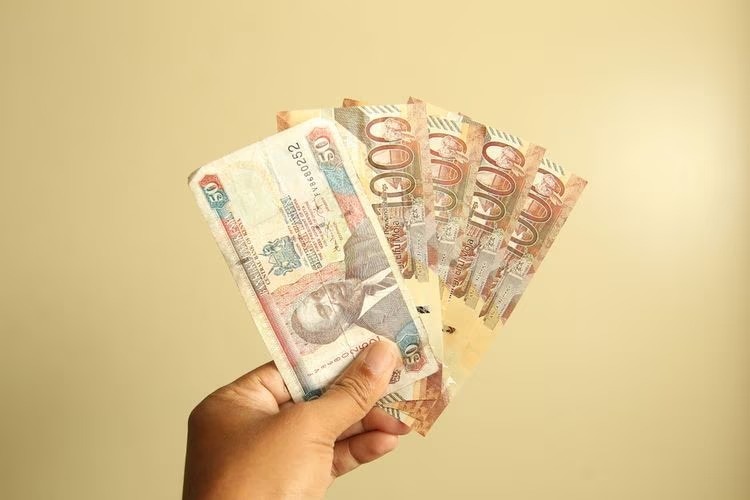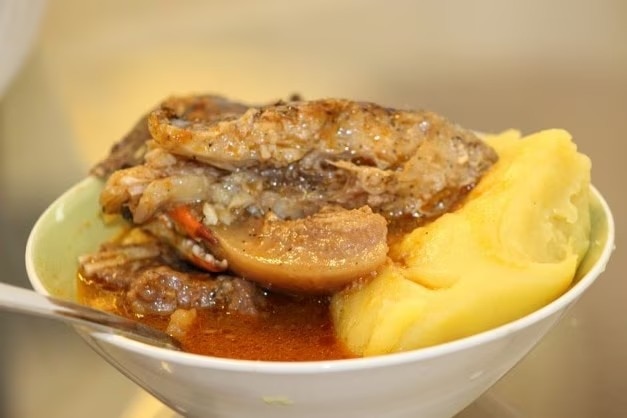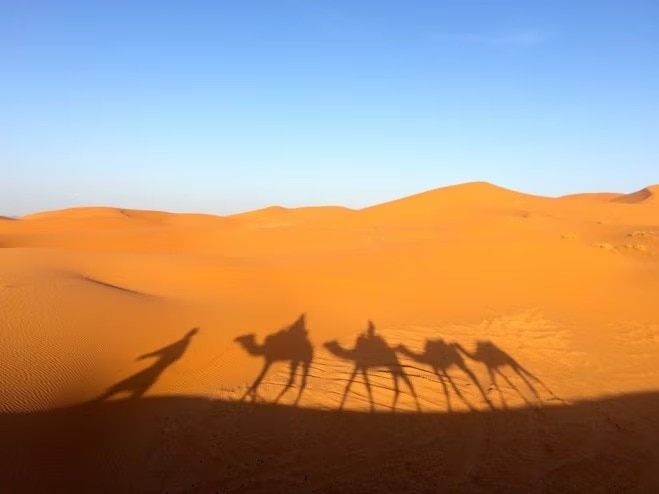Kenya Travel Tips and Information
Official Name
Republic of Kenya
Capital
Nairobi
Population
Country Code
Approximately 56.8 million
KE
Country Code (international calls)
+254
The flight time to Kenya is approximately ---- hours. Check the climate, currency, religion, manners, other information of Kenya below. Wishing you pleasant travels to Kenya.
Kenya is part of the "East African Community" and is bordered by Ethiopia, South Sudan, Somalia, Uganda, and Tanzania. It also faces the Indian Ocean.
Local Climate / Weather
Kenya’s climate is predominantly tropical, with variations across regions due to its diverse geography. Coastal areas, like Mombasa and Malindi, experience a hot and humid climate year-round, with average temperatures around 30°C (86°F). The central highlands, including Nairobi, enjoy a milder climate, with temperatures averaging 20–25°C (68–77°F), and cooler evenings. Western Kenya and regions near Lake Victoria are warm and temperate but can see heavy rainfall. The country’s two main rainy seasons— the "long rains" from March to May and the "short rains" from October to December—impact travel plans, as some roads may become impassable in rural areas. The dry season from June to October is generally cooler and ideal for wildlife viewing, making it the most popular travel period. For seasonal travel advice, consider that Kenya’s peak tourist season aligns with the dry months, especially July through October, which coincides with the Great Migration in the Maasai Mara. This time offers fantastic wildlife-watching opportunities and cooler, dry weather. Between January and February, Kenya’s "shoulder season" also attracts visitors, as this is the calving period in national parks, a unique time to observe young animals and increased predator activity. While the rainy seasons can discourage some travelers, they are often when landscapes are lush and green, and crowds are thinner. For those comfortable with occasional rain, this period also brings lower rates at many lodges and a peaceful ambiance in natural areas. Kenya hosts numerous festivals and events that celebrate its rich cultural and natural heritage. The Maasai Mara Wildebeest Migration from July to October is one of the world’s most spectacular wildlife phenomena, drawing global visitors. The Lamu Cultural Festival, held in November on Kenya’s coast, is another cultural highlight featuring Swahili heritage, traditional dhow races, and poetry recitals. Nairobi Restaurant Week in late January and the Lake Turkana Festival in May provide excellent opportunities to experience Kenya’s diverse culinary and ethnic traditions. These festivals, along with other local events, enhance Kenya’s tourism appeal by offering travelers authentic cultural experiences throughout the year.
Currency & Tipping
Currency
Kenya’s official currency is the Kenyan Shilling (KES), and banknotes come in denominations of 50, 100, 200, 500, and 1,000 shillings. Travelers will find the exchange rate relatively favorable, allowing for good value on essentials and services. Major cities and tourist areas readily accept Visa and MasterCard, but in rural regions, it’s advisable to carry cash as cards may not be accepted.
Tipping
In Kenya, tipping is generally expected but not mandatory. In restaurants, a tip of 10% is appreciated if service wasn’t included in the bill. For hotel staff, small tips of around 100–200 KES are customary for good service. Safari guides, drivers, and porters often rely on tips as part of their income, so consider tipping them based on the quality of service. Tipping in Kenyan shillings is preferred, but US dollars are also widely accepted.
Useful Travel Information

Voltage & Electrical Outlets
Kenya operates on a 240V supply voltage with a frequency of 50Hz, using British-style Type G plugs with three rectangular prongs. Travelers should carry a universal adapter if their devices use a different plug type, and it’s important to check if your electronics support 240V, as using the wrong voltage could damage devices.

Internet Connectivity
The internet environment in Kenya is relatively advanced in urban areas, with Wi-Fi widely available in hotels, cafes, and restaurants in cities like Nairobi and Mombasa. For more remote areas, consider purchasing a local SIM card with data, as mobile network coverage is generally good across the country. Safaricom and Airtel offer affordable data packages, which can be very useful for staying connected during safaris and other rural excursions.
Water for Consumption (Drinking Water)
In Kenya, tap water is generally unsafe to drink, so it’s recommended to stick to bottled or filtered water. Many hotels and lodges provide bottled water, and travelers should use it for brushing teeth as well. Filtration tablets or portable water filters are also useful for those visiting more remote areas, as bottled water may not be as readily available.
Culture, Religion & Social Etiquette
Culture
Kenya’s culture and traditions are vibrant and diverse, shaped by over 40 ethnic groups, including the Maasai, Kikuyu, and Luo communities. Kenyan culture celebrates communal values, traditional dances, music, and festivals that often feature elaborate beadwork, colorful attire, and storytelling. Travelers will find that Kenyans are warm, friendly, and enjoy sharing their heritage with visitors, making for a culturally rich experience.
Religion
Religion in Kenya is predominantly Christian, with a mix of Protestant and Roman Catholic communities, though there are also significant Muslim populations, especially along the coast. Many Kenyans integrate traditional beliefs with modern religious practices, creating a unique spiritual atmosphere. Travelers, mostly Christian themselves, may find common ground and appreciate the presence of churches and places of worship, especially in urban areas.
Social Etiquette
Manners in Kenya are courteous and often follow a slower, more relaxed pace, especially in social interactions. Kenyans value respectful greetings and often start conversations with friendly small talk. It’s polite to greet people with a handshake and avoid direct questions about income or personal details, as privacy is respected. Visitors will find similarities in hospitality and warm interactions but should be mindful of respecting personal space and local customs, especially when taking photographs or visiting rural communities.
Food Culture
Kenya’s food culture is a delightful blend of indigenous flavors, Indian influences, and Middle Eastern spices, offering a unique culinary experience that travelers will love. Staples like maize, beans, and rice form the base of many dishes, with nyama choma (grilled meat) and ugali (maize porridge) being popular favorites. Street food is widely enjoyed, with vendors offering tasty snacks such as samosas, mandazi (fried dough), and smoky, grilled maize cobs, perfect for on-the-go travelers looking to immerse in local flavors. For a sit-down meal, Nairobi’s Carnivore Restaurant is famous for its meat-heavy menu, while Talisman Restaurant blends Kenyan ingredients with global cuisine, offering a cozy, upscale dining experience. Coastal cities like Mombasa feature Swahili cuisine influenced by Arabic and Indian spices, with recommended spots like Tamarind and Jahazi Grill. Exploring Kenya’s food culture through both street food and recommended local restaurants allows travelers to truly savor the country’s diverse and flavorful cuisine.
Major Tourist Attractions & UNESCO World Heritage Sites
Major Tourist Attractions
Kenya is a top travel destination known for its stunning landscapes and rich wildlife, making it ideal for travelers looking for a memorable safari adventure. The Maasai Mara National Reserve, famed for its role in the Great Migration, is a must-visit for breathtaking wildlife viewing and guided game drives. Nairobi, Kenya’s vibrant capital, offers attractions such as the Giraffe Centre and the David Sheldrick Wildlife Trust, where visitors can interact with rescued animals. For a coastal escape, head to Diani Beach, where crystal-clear waters, white sands, and exciting water sports await. Mount Kenya, the country’s highest peak, offers trekking trails that attract both amateur and experienced climbers, providing a mix of adventure and beautiful alpine scenery.
UNESCO World Heritage Sites
Kenya’s World Heritage Sites highlight its cultural depth and natural beauty, providing travelers with unique historical and ecological experiences. Lamu Old Town, a well-preserved Swahili settlement, showcases intricate architecture and a rich history dating back to the 12th century, with local tours offering a deeper look into Kenya’s coastal heritage. The Lake Turkana National Parks, a UNESCO site, boasts diverse ecosystems and wildlife, perfect for nature enthusiasts interested in birdwatching and exploring unique landscapes. The Great Rift Valley is home to several heritage sites, including the sacred Lake Nakuru and the archaeological sites of Koobi Fora, offering both scenic views and insights into human prehistory. These world heritage sites not only showcase Kenya’s diverse heritage but also provide travelers with engaging activities, from historical walking tours to wildlife observation.
Travel FAQs
What is the safety situation in Kenya like? What should I be careful of?
Kenya is generally safe for travelers, but travelers should exercise caution due to risks of crime, terrorism, and civil unrest. It's advisable to avoid areas near the Kenya-Somalia border and certain coastal regions due to heightened security concerns. In urban centers like Nairobi, be vigilant against petty crimes such as pickpocketing and avoid walking alone at night.
Is English spoken in Kenya?
English is one of the official languages in Kenya, and communication in English is possible in many places.
What is the security situation in Kenya? Is there anything I should be careful of?
The security situation in Kenya is not necessarily stable, and in addition to general crime, you need to be careful of terrorism and kidnapping. In the Kenya safety information released by the Ministry of Foreign Affairs, avoid areas where evacuation and travel suspension are issued.
What is the best season to visit Kenya?
The best season to visit Kenya is the dry season, from June to October.
What are the major cities in Kenya?
The capital, Nairobi, is located at an altitude of 1,600 meters and is known as a cool city all year round.
What is the most popular airport to fly into Kenya?
The airport in Nairobi, Jomo Kenyatta International Airport, is popular. It is accessible from the United States, Europe, Asia, and the Middle East.




